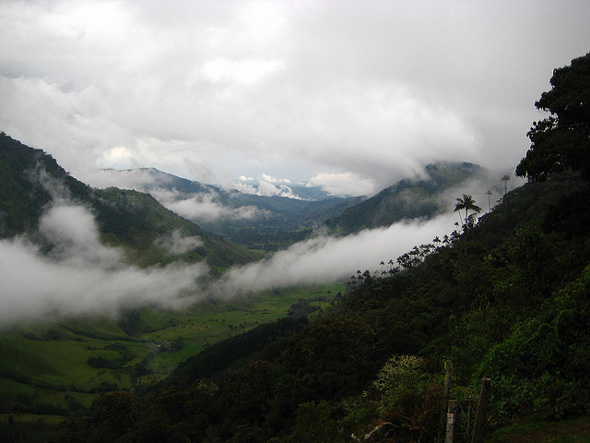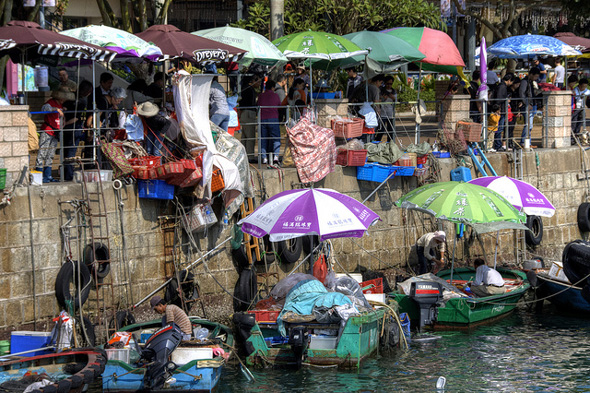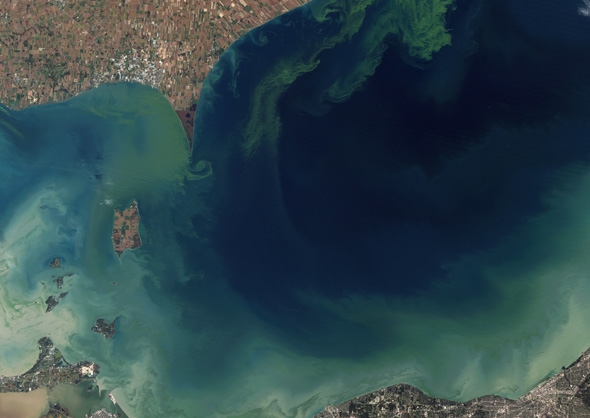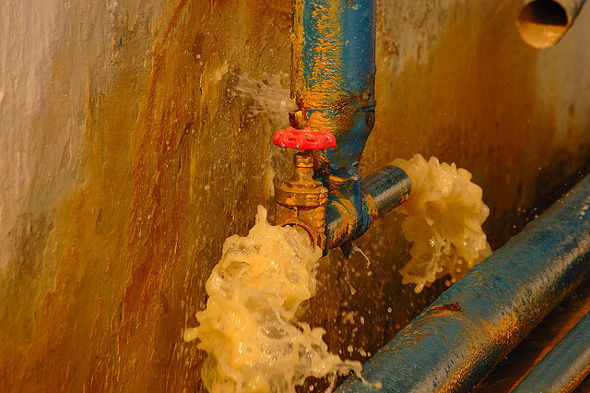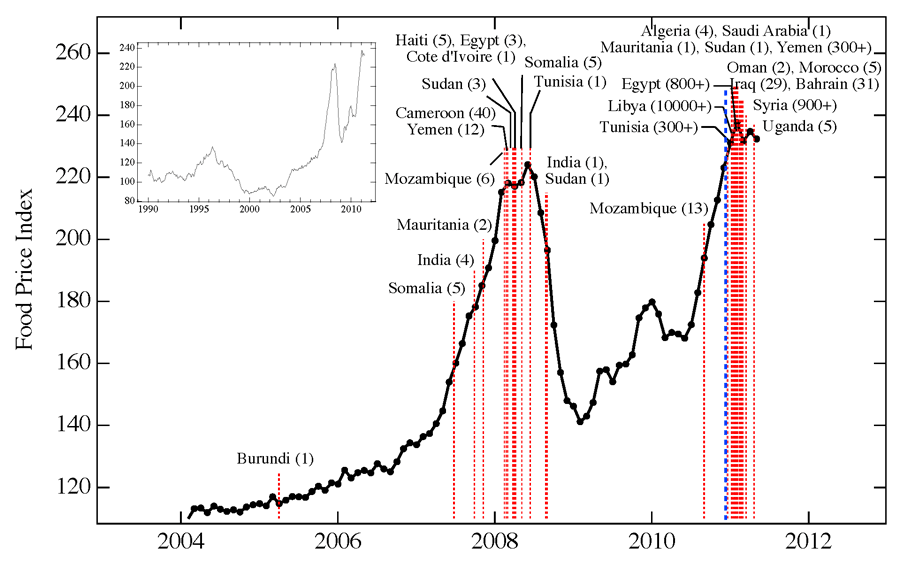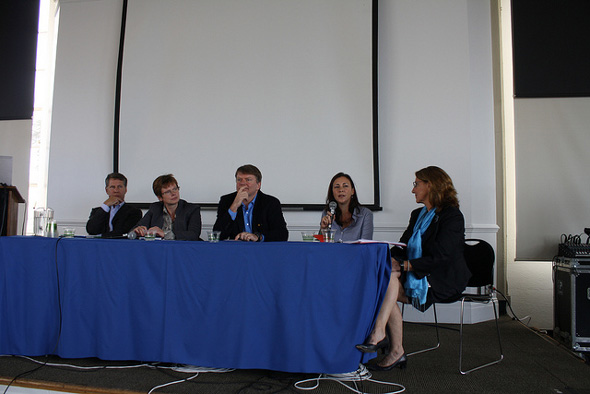-
Ruth Greenspan Bell, Bloomberg News
Global Warming Experts Should Think More About the Cold War
›January 2, 2013 // By Wilson Center Staff
The original version of this article, by Ruth Greenspan Bell, appeared on Bloomberg News.
Every year the United Nations convenes diplomats from more than 190 nations to negotiate a climate change treaty, and in many years negotiators go home with little more than the promise of another annual meeting.
-
Autumn Spanne, The Daily Climate
Colombia’s Unexplored Cloud Forests Besieged by Climate Change, Development
›December 13, 2012 // By Wilson Center Staff
The original version of this article, by Autumn Spanne, appeared on The Daily Climate.
Five hours by truck and mule from the nearest town, a rumbling generator cuts through the silent night to power large spotlights as botanists crouch and kneel on large blue tarps spread across a cow pasture. It’s nearly midnight, and the team works urgently to describe every detail of the dozens of colorful orchids, ferns, and other exotic plants they have collected that day in Las Orquídeas National Park, one of the single most biologically diverse places on the planet.
-
Lydia Polgreen, The New York Times
As Coal Boosts Mozambique, the Rural Poor Are Left Behind
›November 14, 2012 // By Wilson Center StaffThe original version of this article, by Lydia Polgreen, appeared on The New York Times.
When Augusto Conselho Chachoka and his neighbors heard that the world’s biggest coal mine was to be built on their land, a tantalizing new future floated before them. Instead of scraping by as subsistence farmers, they would earn wages as miners, they thought. The mining company would build them sturdy new houses, it seemed. Finally, a slice of the wealth that has propelled Mozambique from its war-addled past to its newfound status as one of the world’s fastest-growing economies would be theirs.
-
Liang Jialin and Jiang Han, ChinaDialogue
Overfishing Pushes 80 Percent of Chinese Fishermen Towards Bankruptcy
›November 9, 2012 // By Wilson Center Staff
The original version of this article, by Liang Jialin and Jiang Han, appeared in English on ChinaDialogue and in Chinese on Economic Information Daily.
In mid-September, the fishing season got under way as usual in Ningbo, on China’s east coast, after the three-month season when fishing is forbidden. Over 2,000 steel-hulled boats headed out to sea. But, on board, there was little cause for optimism.
-
Michael D. Lemonick, Climate Central
Surprise Geoengineering Test Goes Forward Off Coast of Canada
›November 2, 2012 // By Wilson Center Staff
The original version of this article, by Michael D. Lemonick, appeared on Climate Central.
Harvard’s David Keith calls it the “goofy Goldfinger scenario” – a rogue nation, or even an individual, would conduct an unsupervised geoengineering experiment – and he confidently predicted in a story I wrote last month that it would never happen.
-
Michael Kugelman, Global Times
Repairs Could Stifle South Asia’s Water War
›October 19, 2012 // By Wilson Center Staff
The original version of this article, by Michael Kugelman, appeared on Global Times.
In recent weeks, militants in Pakistan have escalated their hostile rhetoric toward India. The subject of their ire is water. Hafiz Saeed, the head of militant Islamist group Jamaat-ud-Dawa, has warned that India plans “to make Pakistan barren” by preventing the waters of the Indus Basin from flowing downstream to Pakistan.
-
Maria Godoy, The Salt
Can Riots Be Predicted? Experts Watch Food Prices
›October 19, 2012 // By Wilson Center StaffWhen French peasants stormed the Bastille on July 14, 1789, they weren’t just revolting against the monarchy’s policies. They were also hungry.
-
Gwen Hopkins, Next Billion
Family Planning as an Investment? The Aspen Institute at the 2012 Social Capital Markets Conference
›October 16, 2012 // By Wilson Center Staff
Two weeks ago, 1,600 venture capitalists, philanthropists, and entrepreneurs gathered at the 2012 Social Capital Markets Conference (SOCAP) to discuss the question at the heart of impact investing: How can investments do well while also doing good? Consistent with the in-depth nature of SOCAP, panels examined every aspect of capital flows, including how to structure a business, how to move an idea from a prototype to scale, and where to invest for maximum impact. The resulting conversations gave rise to multiple technical suggestions – and one paradigm shift. In order to do well and do good, multiple conference participants argued, investors must incorporate a gender lens into their portfolio.
Showing posts by Wilson Center Staff.


